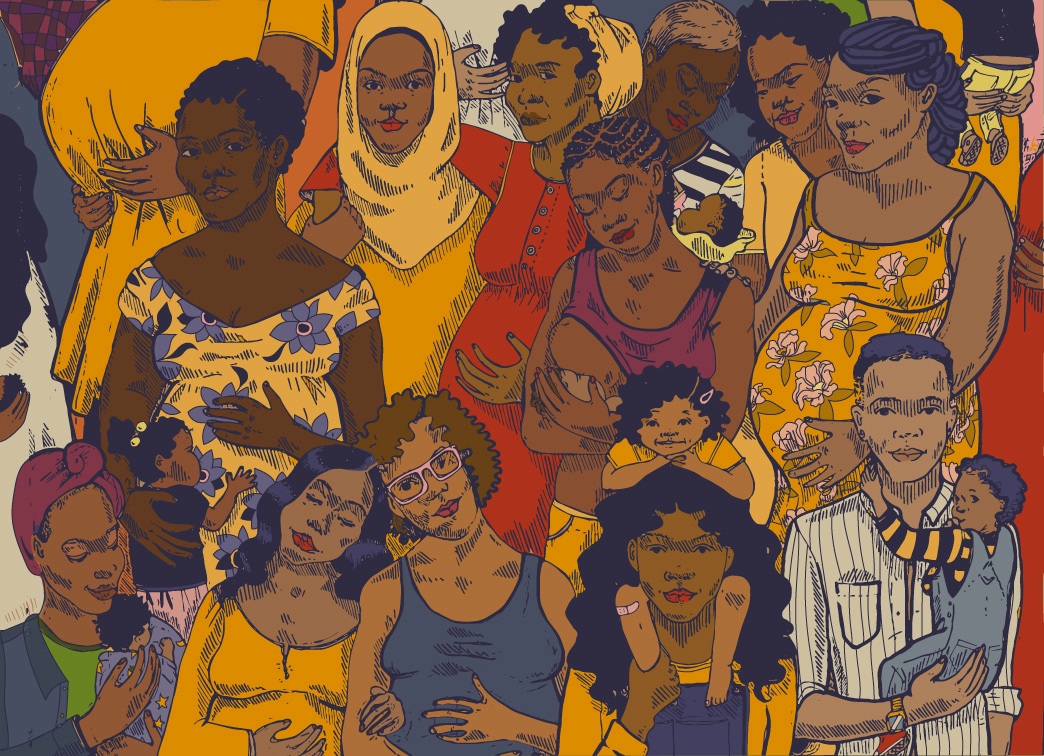
Adoptive families, especially Black adoptive families, can face unique challenges that get left out of conversations about maternal health and parenting. Womanly Magazine spoke to five Black women who built their families through adoption, and got some advice for people considering or pursuing adoption.
Preterm birth, also known as premature birth, is when a baby is born before 37 weeks of pregnancy. Babies born this early often show physical signs of prematurity and can develop a range of medical complications.
Killing The Black Body: Race, Reproduction, And The Meaning Of Liberty by Dorothy Roberts is a powerful insight into the reproductive history of Black women in America.
Solana Cain captures Black Motherhood through portraits and statements in this photo essay. The portraits and statements from each mother recognizes, honors, and celebrates Black Motherhood.
Womanly Magazine is a health and arts publication providing accessible health information to women and non-binary people.

Terri Fleming, Womanly Magazine Health Educator, discussed the intersections of race, class, and maternal health with Dr. Khiara M. Bridges, and explored the possibility of a way forward for health care providers and the Black women they serve.
Mama Tree Troi Lauren reflects on the full body glow of pregnancy in this photo essay by Linette Kielinski.
Prenatal care practices that give the parent and child a stronger likelihood of good health before, during, and after birth.
These portraits by Ash Luna capture intimacy and joy of 4th trimester bodies and parenthood.
What is miscarriage? Miscarriage is when a fetus or embryo dies before the 20th week of pregnancy.
My daughter was born hours before a snow storm hit Philadelphia in 2016. I remember driving to the hospital with my partner, excited and nervous.
I used to daydream about naming you. I imagined how you would be Black like mommy, proud like mommy, loud like mommy.
Womanly Magazine Health Educator Aarti Patel sat down with Donna Hylton to hear more about her personal experience as a mother while she was incarcerated, and how the lessons she learned in prison led her to activism.
At 35 weeks, I had my first elevated blood pressure in the office. It was only mildly elevated, in the pre-hypertensive range.
A pregnancy is considered high risk if there are conditions in place that threaten the health or life of either the pregnant parent or the fetus.
One of the few Black midwives in Philadelphia wants to give women of color more health care options.
Racial bias, assumptions, and structural barriers to health care can impact the way you receive care during your pregnancy and delivery, so it’s necessary to do your research and know about all aspects of your maternal health. Here are some things providers might not tell you:
One of the few Black midwives in Philadelphia wants to give women of color more health care options.
When a Black mom-to-be walks into her doctor’s office, she is more likely to be seen as her labels.
Editor-In-Chief Attia Taylor met with Pascale Bernard to talk about her path to women’s health advocacy, the challenges Black women face in relation to their maternal health, and how Planned Parenthood is working to improve maternal health outcomes.
Ne Me Quitte Pas. These words echoed throughout my childhood, before I understood the depth of the artist who uttered them and what they would come to mean to me at different stages of life.
Maternal health in the United States is in crisis. The United States ranks 46th in the world in maternal mortality.

In 2002, I was pregnant with my first child and filled with excitement and anticipation of his impending arrival. I wanted to learn everything.
High blood pressure can often be brought upon by pregnancy, a condition called gestational hypertension or pregnancy induced hypertension (PIH).
Being overweight or obese during pregnancy can put a parent at risk of certain complications, so prenatal care, including regular appointments with a health care provider, is very important.
According to the Kaiser Family Foundation, prenatal care costs on average about $2,000 for a typical pregnancy.
The American Academy of Pediatrics recommends that babies are breastfed exclusively for the first 6 months, and continue to breastfeed alongside supplements for the first year or longer.
Gestational diabetes occurs when diabetes is diagnosed in a pregnant person who did not have diabetes prior to pregnancy.
check out some of our most trusted resources for preventive health care education and crisis management.





































